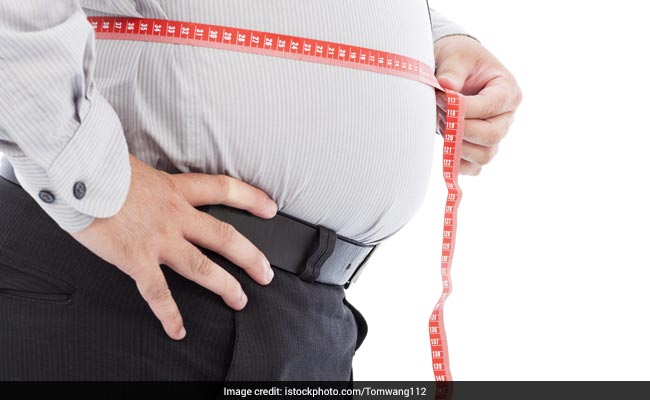Discover the key difference between bloating and fat you should know.
Discover the key difference between bloating and fat you should know.
Blog Article
Why Understanding the Difference In Between Bloating and Fat Is Vital for Your Digestion Health And Wellness
Comprehending the difference in between bloating and body fat is vital for maximizing digestive wellness. Bloating can be indicative of underlying gastrointestinal problems or nutritional level of sensitivities, while body fat stands for a much more stable aspect of total health and wellness and needs various considerations. Misunderstanding these 2 problems might bring about ineffective strategies that disregard the origin of discomfort. By clearing up these differences, individuals can much better tailor their approaches to dietary habits and lifestyle modifications. This expedition raises crucial inquiries concerning just how to successfully manage these differing aspects of health and wellness.
Understanding Bloating
Several people experience bloating at some factor in their lives, yet the underlying reasons and implications for gastrointestinal health and wellness can be intricate. Bloating is characterized by a sensation of fullness or tightness in the abdominal area, frequently accompanied by noticeable distension. This problem can emerge from different variables, consisting of nutritional selections, stomach conditions, and lifestyle behaviors.
Usual nutritional wrongdoers consist of high-fiber foods, carbonated drinks, and particular sugars that are inadequately soaked up in the intestinal tract. Lactose intolerance can lead to bloating after consuming dairy items, while too much usage of beans might trigger gas manufacturing. Furthermore, overindulging or eating too quickly can worsen the sensation of bloating, as the body has a hard time to refine large amounts of food efficiently.
Stomach conditions, such as cranky digestive tract syndrome (IBS) or gastric condition, can additionally complicate the experience of bloating, as they typically involve enhanced level of sensitivity and impaired food digestion. Recognizing the certain triggers and mechanisms behind bloating is vital for effective administration and therapy, allowing individuals to make enlightened nutritional and lifestyle changes to promote optimal digestive system health and wellness.
Identifying Body Fat

Identifying the distinction in between bloating and body fat is crucial for understanding one's general digestive wellness and physical condition. Body fat describes the adipose tissue that is stored in different regions of the body, functioning as a power get and playing vital functions in hormone policy and thermal insulation. It is necessary to properly determine body fat to analyze health and wellness risks related to extreme adiposity, such as cardio disease and diabetes.
To determine body fat, people can make use of several techniques, consisting of body mass index (BMI), skinfold measurements, and bioelectrical resistance evaluation. BMI is an extensively used tool that correlates weight and elevation; nonetheless, it may not accurately show body make-up. Skinfold dimensions entail pinching different areas of the body to assess fat density, while bioelectrical impedance makes use of electric currents to approximate body fat percentage.
Visual examination can additionally contribute in acknowledging body fat circulation, which can give insight into health and wellness effects. Visceral fat surrounding the organs positions higher wellness threats contrasted to subcutaneous fat situated simply underneath the skin. Comprehending these nuances is important for adopting ideal health and wellness strategies and enhancing general wellness.

Reasons For Bloating
Bloating can develop from a wide variety of aspects that impact the digestion system, causing discomfort and a distended abdomen. see here One common reason is the intake of air, which can happen while consuming or consuming alcohol as well swiftly, chewing gum, or smoking (bloating and fat). This air accumulation can develop a feeling of fullness and stress
Nutritional options likewise play a considerable role in bloating. Specific foods, especially those high in fiber, such as beans, lentils, and cruciferous veggies, might result in gas production throughout digestion. In addition, carbonated drinks can introduce excess gas right into the digestion tract.
Food intolerances and level of sensitivities, such as lactose intolerance or gluten sensitivity, are other common causes of bloating. When people take in foods they can not properly absorb, it can lead to gas and pain.
In addition, hormonal variations, especially in women during the menstruation, can add to bloating due to water retention and gastrointestinal changes. Finally, underlying medical conditions, such as cranky bowel syndrome (IBS) or stomach blockage, may also manifest as bloating, stressing the relevance of appropriate medical diagnosis and administration. Comprehending these reasons is vital for reliable symptom administration.
Influence on Digestive Health
Relentless bloating can substantially affect digestive system wellness, affecting overall well-being and lifestyle. Bloating frequently results from the accumulation of gas or liquid in the intestinal tract, resulting in discomfort and a distended abdomen. This condition can conflict with regular digestive system procedures, hindering nutrition absorption and causing deficiencies in time.
Moreover, chronic bloating might be a measure of underlying intestinal conditions such as irritable bowel syndrome (IBS), gastric illness, or food intolerances (fat and bloating). When these conditions are left unaddressed, they can intensify symptoms and bring about more issues, including irregularity or diarrhea
The emotional consequences of bloating should additionally be recognized. Frequent pain can contribute to stress and anxiety and stress pertaining to consuming and social interactions, further making complex one's connection with food and food digestion.
Strategies for Administration
Efficient monitoring of bloating needs a diverse strategy that attends to dietary routines, lifestyle modifications, and potential clinical treatments. Individuals need to evaluate their diet regimens, identifying and getting rid of usual triggers such as dairy, gluten, and high-FODMAP foods, which are understood to add to gas and discomfort. Integrating fiber progressively can enhance digestion wellness, but extreme fiber consumption need to be avoided, as it may aggravate bloating.

Anxiety monitoring click for more techniques, including mindfulness and deep-breathing workouts, can likewise play a considerable function. fat vs bloating. Stress and anxiety is recognized to impact gastrointestinal function negatively, resulting in boosted bloating
If way of life and nutritional alterations do not over at this website generate alleviation, getting in touch with a medical care specialist is suggested. They might advise analysis examinations to rule out hidden problems such as Cranky Bowel Disorder (IBS) or food intolerances. Sometimes, medications or supplements may be prescribed to alleviate signs and symptoms successfully, guaranteeing a comprehensive strategy to taking care of bloating.
Verdict
In final thought, comparing bloating and body fat is crucial for advertising digestion health and wellness. Bloating, typically arising from dietary selections or intestinal issues, requires targeted treatments to minimize pain. On the other hand, body fat stands for a steady element of body composition demanding various administration approaches. Acknowledging these distinctions assists in the execution of effective nutritional modifications and lifestyle changes, inevitably adding to enhanced digestive health and general lifestyle. Recognizing these concepts encourages individuals to make enlightened health and wellness decisions.
Report this page